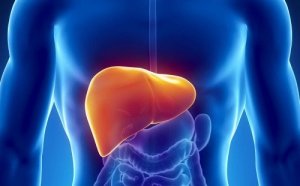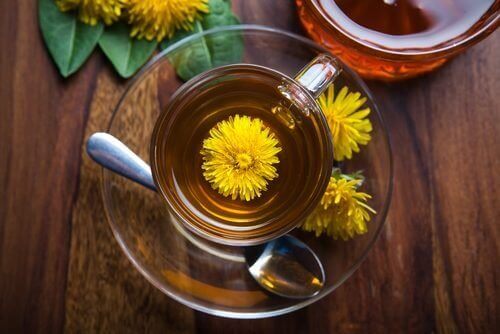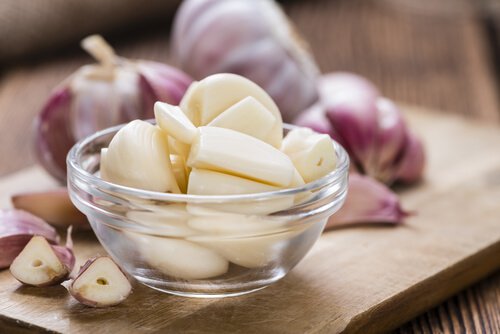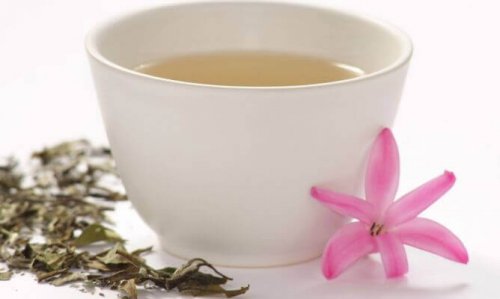10 Easy Ways to Heal Your Liver


Written and verified by psychologist Valeria Sabater
The liver is an organ with a variety of different functions. By maintaining a healthy lifestyle, you allow your liver to carry out these functions correctly. However, if you drink too much alcohol, eat a fatty diet, and ignore other aspects of your health, it’s possible that you might one day come to the realization that you need to quit these bad habits, and you start to look for natural ways to heal your liver.
Some of the functions of the liver include: destroying toxins and dead cells, metabolizing lipids, carbohydrates and proteins, purifying the blood, and storing essential nutrients for our internal balance. When a change occurs and the organ cannot carry out its functions normally, it will quickly start to have an impact on your health.
So, are there ways to heal the liver naturally, and help it work properly again?
Improving your lifestyle habits, following your doctor’s instructions, and taking everything in moderation is the best way to promote great health and well-being.
10 natural ways to heal your liver
In this next section, we’ll take a look at some tricks and tips which can help to heal your liver naturally. Some of these involve consuming certain drinks or foods which you can use to supplement your diet.
It’s important to remember that if you have any doubts about how to improve your liver health through your diet, or you simply want to start eating a more balanced diet, you can always consult a nutritionist.
1. Chicory root tea
Chicory root tea (Cichorium intybus) has diuretic properties which stimulate urination and help to expel retained fluids from the body. It also helps to clear out any potential pathogens and waste substances through the urine.
According to popular belief, this drink can also stimulate liver function, thus promoting liver health.
2. Artichokes
If there’s one vegetable that’s perfect for combating liver problems, it’s the artichoke. According to information from the Spanish Nutrition foundation, artichoke contains inulin, fiber and, to a lesser extent, potassium and phosphorus – minerals which are essential for good health.
You can eat cooked artichokes with a little olive oil or drink the water that was used to cook them, mixed with a little lemon juice. According to popular belief, this drink is highly recommended.
3. Dandelion tea

Another hydrating drink with diuretic properties is dandelion tea. It’s believed that this plant can be a great ally when it comes to promoting liver health, and that it may be beneficial when consumed as part of a balanced diet.
4. Beet juice
Beets are tubers with an attractive crimson color and fresh, earthy flavor. Also, they’re full of nutrients which can help heal the liver naturally. There are those who believe that, as well as helping to regenerate the cells, it can also help to cleanse and strengthen the liver.
Although beet is highly recommended as part of a balanced diet, there is no scientific evidence to suggest that beet juice possesses these properties.
Beet is a source of fiber, potassium, proteins and folates. According to the Spanish Nutrition Foundation, it’s a “good source of fiber (one portion contains 17% of the daily recommended amount for men and 25% for women)”.
5. Garlic

Eating one clove of garlic on an empty stomach with a glass of water is considered a popular remedy for healing the liver naturally.
However, it’s been scientifically demonstrated that garlic does not have the ability to provide these benefits (when consumed in this manner). It’s simply recommended as part of a healthy, balanced and varied diet.
6. Lemons
Because lemons are rich in vitamin C, which is essential for tissue growth and repair throughout the body, it’s believed that consuming lemon juice regularly could help to heal the liver naturally.
It’s important to remember that experts do not recommend drinking lemon juice in large quantities, as it can cause gastrointestinal discomfort. It’s best to drink it in moderation.
7. White tea

It’s believed that this ancient drink not only supports healthy lifestyle habits and promotes well-being, but that its antioxidant content could also help to heal the liver.
8. Milk thistle
Milk thistle infusion (Silybum marinum) also has a positive impact on hepatic function. This plant is well-known for being the main ingredient in a number of natural remedies designed to treat liver and bile duct problems.
9. Go green with veggies
Your diet shouldn’t be lacking in cruciferous vegetables like broccoli and kale. Furthermore, it’s also a good idea to prepare tasty salads with bitter greens such as:
- Watercress
- Arugula
- Radishes
- Parsley
- Endives
- Escarole
- Spinach
According to popular belief, the bitter flavor is a sign that an ingredient is rich in phytonutrients. These organic components act as a natural protector in plants, and are found in legumes, vegetables and fruit. It’s believed that they can improve or prevent certain conditions, and help heal the liver.
You might like: How to use parsley and lemon to detox your kidneys.
10. Walk every day
As we’ve already mentioned, daily physical exercise is also highly recommended when it comes to promoting health and well-being.
Walking for 30 minutes every day optimizes all your bodily functions. Yes, something as simple as working up a sweat, moving your muscles, and accelerating your heart rate can do a lot more good than you might think, which can, in turn, help to heal the liver.
The key to a healthy, functioning liver is leading a healthy lifestyle. Why not start putting some of these tips into practice today?
All cited sources were thoroughly reviewed by our team to ensure their quality, reliability, currency, and validity. The bibliography of this article was considered reliable and of academic or scientific accuracy.
- Castaing, D., & Veilhan, L. (2006). Anatomía del hígado y de las vías biliares. EMC – Técnicas Quirúrgicas – Aparato Digestivo. https://doi.org/10.1016/S1282-9129(06)47846-6
- Gomes-da-Silveira, V., & Ribeiro-Filho, J. (2006). Anatomia y Fisiologia Hepatica. El Transplante Hepático En El Comienzo Del Milenio. https://doi.org/10.1002/bjs.5652
- Mikaili P, et al. Therapeutic Uses and Pharmacological Properties of Garlic, Shallot, and Their Biologically Active Compounds. Iran J Basic Med Sci. 2013 Oct; 16(10): 1031–1048. https://www.ncbi.nlm.nih.gov/pmc/articles/PMC3874089/
This text is provided for informational purposes only and does not replace consultation with a professional. If in doubt, consult your specialist.








